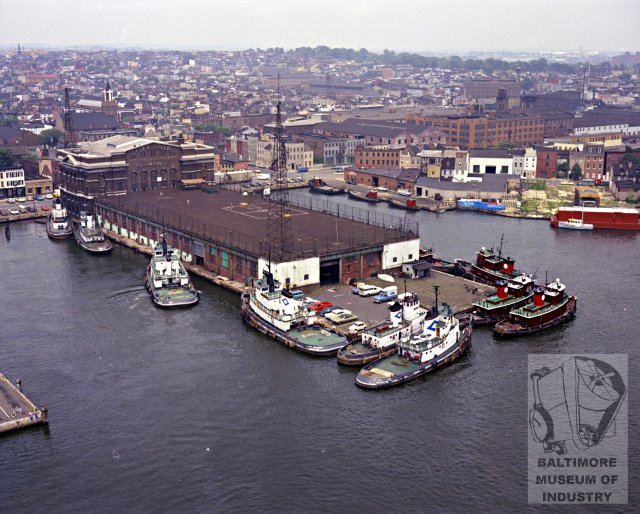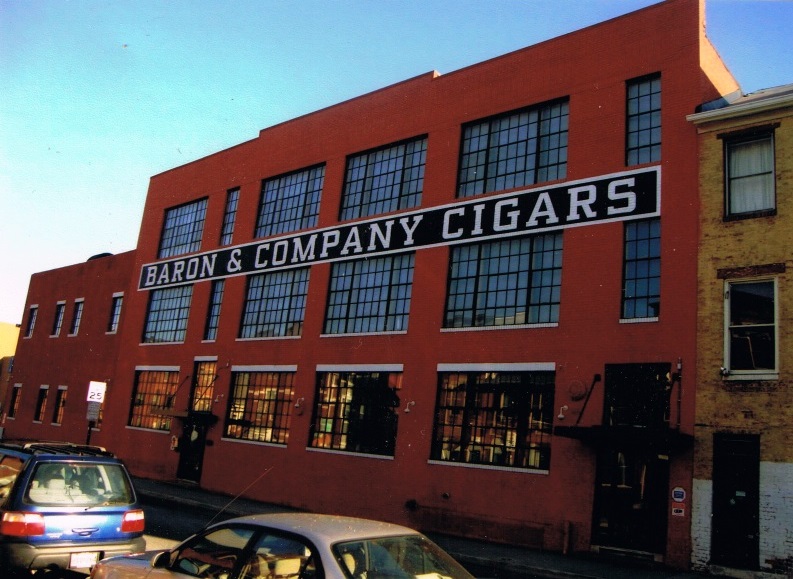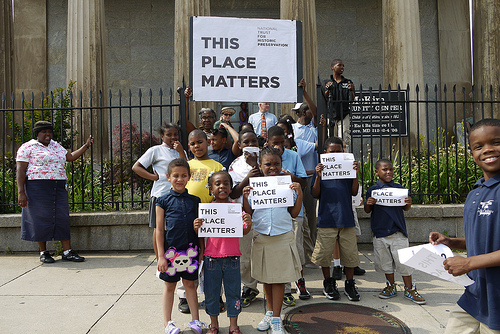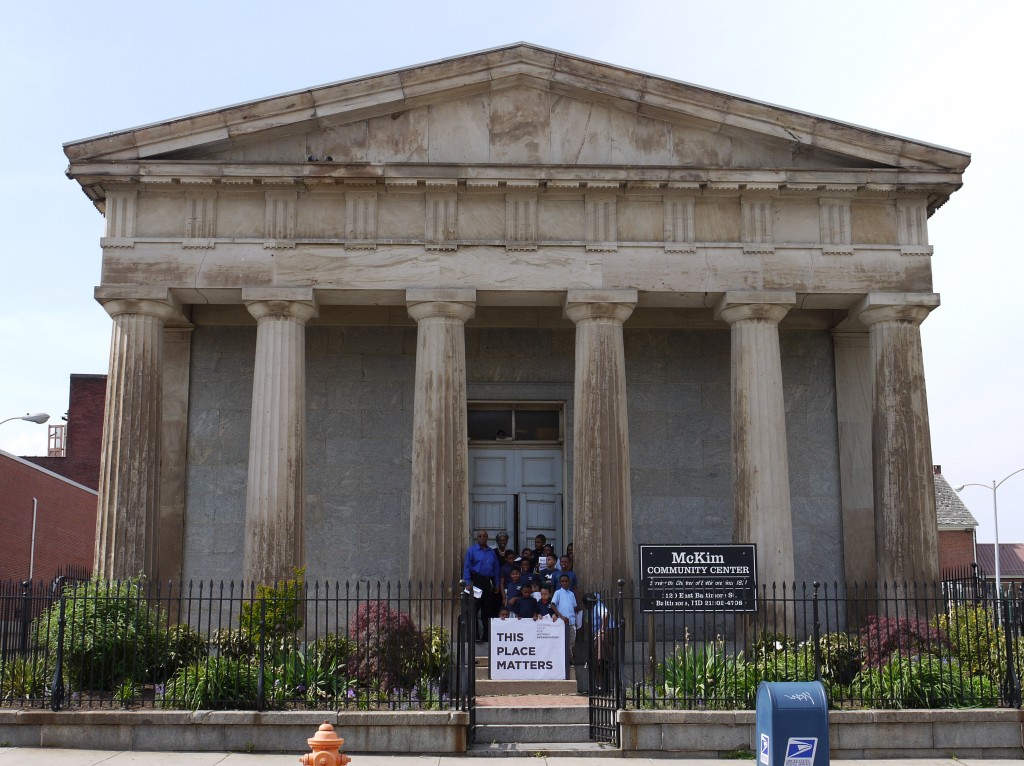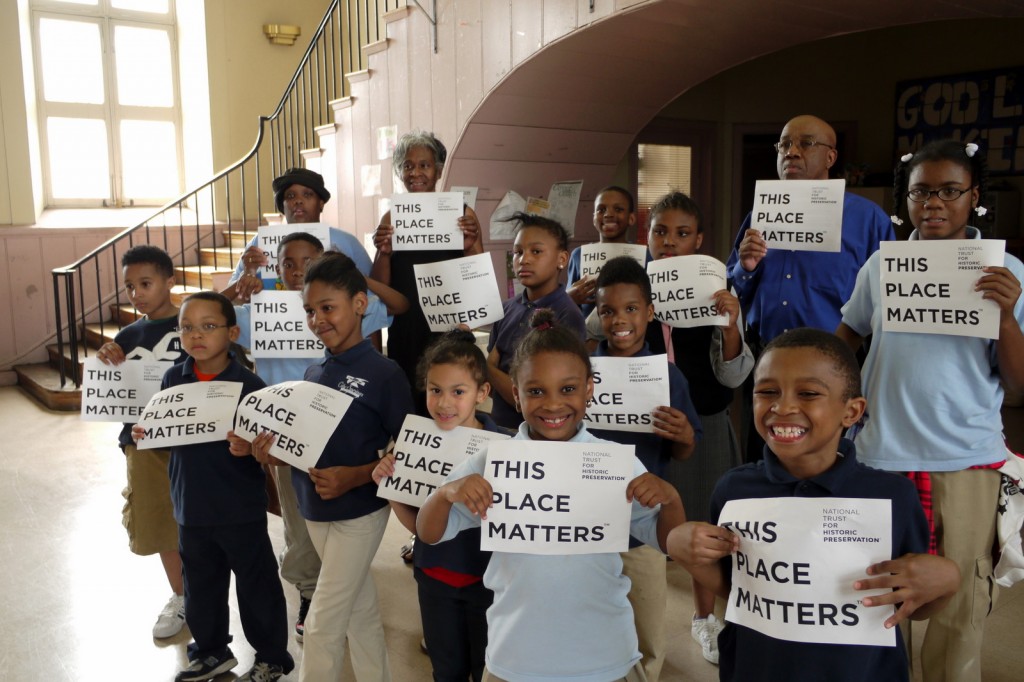In recognition of the 150th anniversary of the beginning of the Civil War, Baltimore Heritage is sponsoring a two-part program to explore sites in Baltimore with important ties to slavery and to learn about what historic sites around the country are doing to tell the story of slavery in America. The first part of the program is a walking tour of FrederickDouglass’s Fell’s Point, led by historian Louis Fields. The second part will be a talk by Ms. Nell Ziehl of the National Trust for Historic Preservation, on interpretation of slavery at historic sites nationally. Both are free, and I hope you can join us.
Frederick Douglass’s Fell’s Point Walking Tour
Saturday, October 1, 2011, 10:00 am to 12:00 pm
Free, RSVP
RSVP is required. Expect confirmation with additional details.
Slavery and Historic Sites
Ms. Nell Ziehl, National Trust for Historic Preservation
Thursday, October 6, 2011, 7:00 pm to 8:00 pm
Ebenezer Church, 20 West Montgomery Street, Baltimore 21230
Free, RSVP not required
Frederick Douglass is quoted as saying that knowledge is the pathway from slavery to freedom, and he certainly grabbed a good dose of it as a youngster in Fell’s Point. It was here that he learned to read and write, and from here that he escaped to freedom. In a two hour walking tour, local historian Louis Fields will lead us through Fell’s Point as experienced and shaped by Frederick Douglass in the years leading up to the Civil War and immediately after it. Mr. Fields was a driving force behind the creation of the plaques and monuments to Frederick Douglass that are now located throughout the area.
In the second part of our Civil War commemoration series, Ms. Nell Ziehl will lead a discussion on how sites owned by the National Trust for Historic Preservation across the country preserve and interpret slavery. The interpretation and presentation of history involving slavery has evolved quickly over the last several years, with richer information and more accurate accounts in the forefront. The National Trust owns several sites with strong ties to slavery and the Civil War and has been a leader in this movement, and Ms. Ziehl will share some of the challenges and successes in this ongoing endeavor. Please join us for either or both of these free events.
These events are made possible by Free Fall Baltimore and its sponsors: Susquehanna Bank and the Baltimore Office of Promotion & The Arts, Joseph and Harvey Meyerhoff Family Charitable Funds, The Abell Foundation, William G. Baker, Jr. Memorial Fund, American Trading and Production Corporation (Atapco) and Baltimore Community Foundation. Thanks also to Free Fall media sponsors: The AFRO-American Newspapers, The Baltimore Sun, The City Paper, The Urbanite, The Jewish Times, , Maryland Public Television, WBAL-TV, WJZ-TV, WBFF/Fox45-TV, CW/Baltimore-TV, WMAR-TV, WUTB-TV, WYPR Radio, WEAA Radio, WWMX Radio , Radio One: Magic 95.9; Spirit 1400; WOLB; 92Q, and CityPeek.

